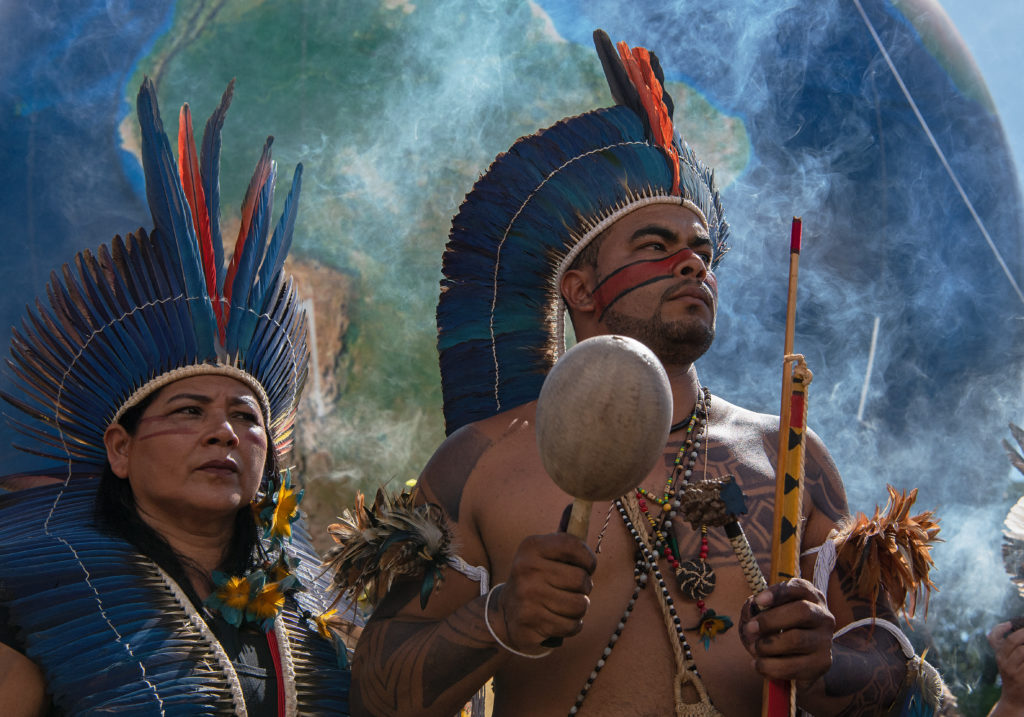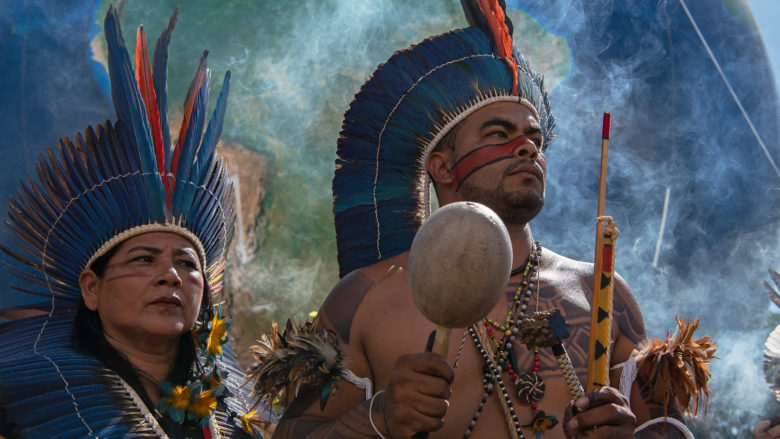
Before people across America celebrated Indigenous People’s Day in October, Brazil’s Indigenous population was granted a great legal victory. The Brazilian Supreme Court voted “against an effort to restrict native peoples’ rights to protected reservations on their ancestral lands.” The court voted against the so-called “Time Limit Trick,” where agribusiness interests pushed to prevent Indigenous communities from claiming land they did not physically occupy in 1988.
The Brazilian Institute of Geography and Statistics estimates there are almost a million Indigenous people in Brazil, represented by 305 different ethnic groups. In Brazil, Indigenous lands cover more than 263 million acres, representing about 12.5% of the total Brazilian territory. Most Indigenous lands are located in the Amazon region.
When Jair Bolsonaro was elected president, many within and outside Brazil saw him as a threat to the rights of the Indigenous population. According to the International Work Group for Indigenous Affairs (IWGIA), “[the president’s] policies and agenda directly threaten the constitutional rights and freedoms of Brazil’s Indigenous Peoples.” During his administration from 20192022, deforestation in the Amazon region increased by 50%, Indigenous lands were invaded, and Indigenous people were killed. Active complaints have been filed against him at the International Criminal Court in the Hague for crimes against humanity, genocide and ecocide.
In 2021, Francisco Cali Tzay, the U.N. special investigator on the rights of Indigenous peoples, had urged Brazil’s Supreme Court to protect Indigenous lands citing the following: ‘Under the constitution, Indigenous peoples are entitled to the permanent possession of the lands they traditionally occupy.’
On Thursday, September 21st, 2023, nine of the Brazilian Supreme Court’s eleven members voted against the Time Limit Trick, taking a strong stand in defense of Indigenous rights to land. The two Supreme Court justices who voted in favor of the Time Limit Trick had been appointed by the former far-right president Jair Bolsonaro.
The Time Limit Trick could prevent Indigenous people from making legitimate claims for ancestral lands. This includes Indigenous groups who had been evicted or were driven from their ancestral lands during Brazil’s military dictatorship, which ended in the 1980s.
A majority of the justices on the Supreme Court determined the Time Limit Trick was unconstitutional, and voted to protect and preserve Indigenous rights to ancestral lands. “[This is a] victory for struggle, a victory for rights, a victory for our history,” Indigenous congresswoman Célia Xakriabá tweeted. “[All of] Brazil is Indigenous territory and the future is ancestral.”
Judge Cármen Lúcia Antunes Rocha, one of the nine justices to vote in favor of Indigenous rights, said: “We are caring for the ethnic dignity of a people who have been decimated and oppressed during five centuries of history.” Rocha said Brazilians had “an unpayable debt” to Brazil’s Indigenous peoples.

